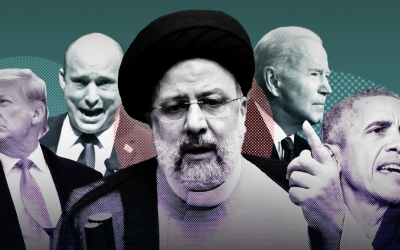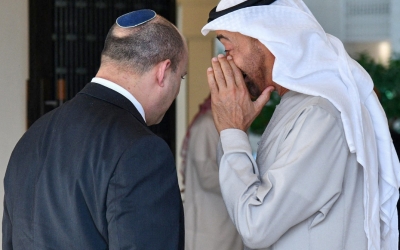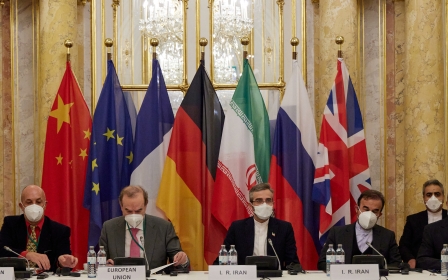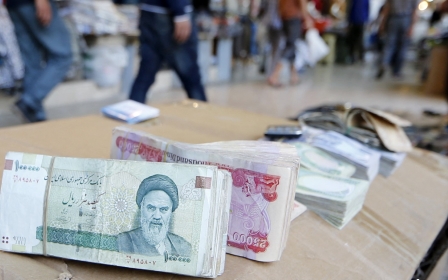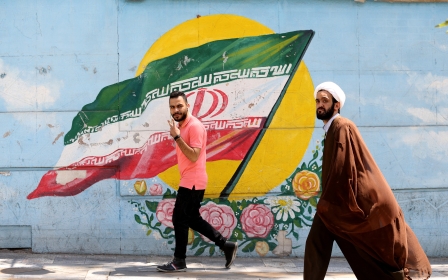Iranian press review: Tehran unimpressed with US sanctions waiver restoration
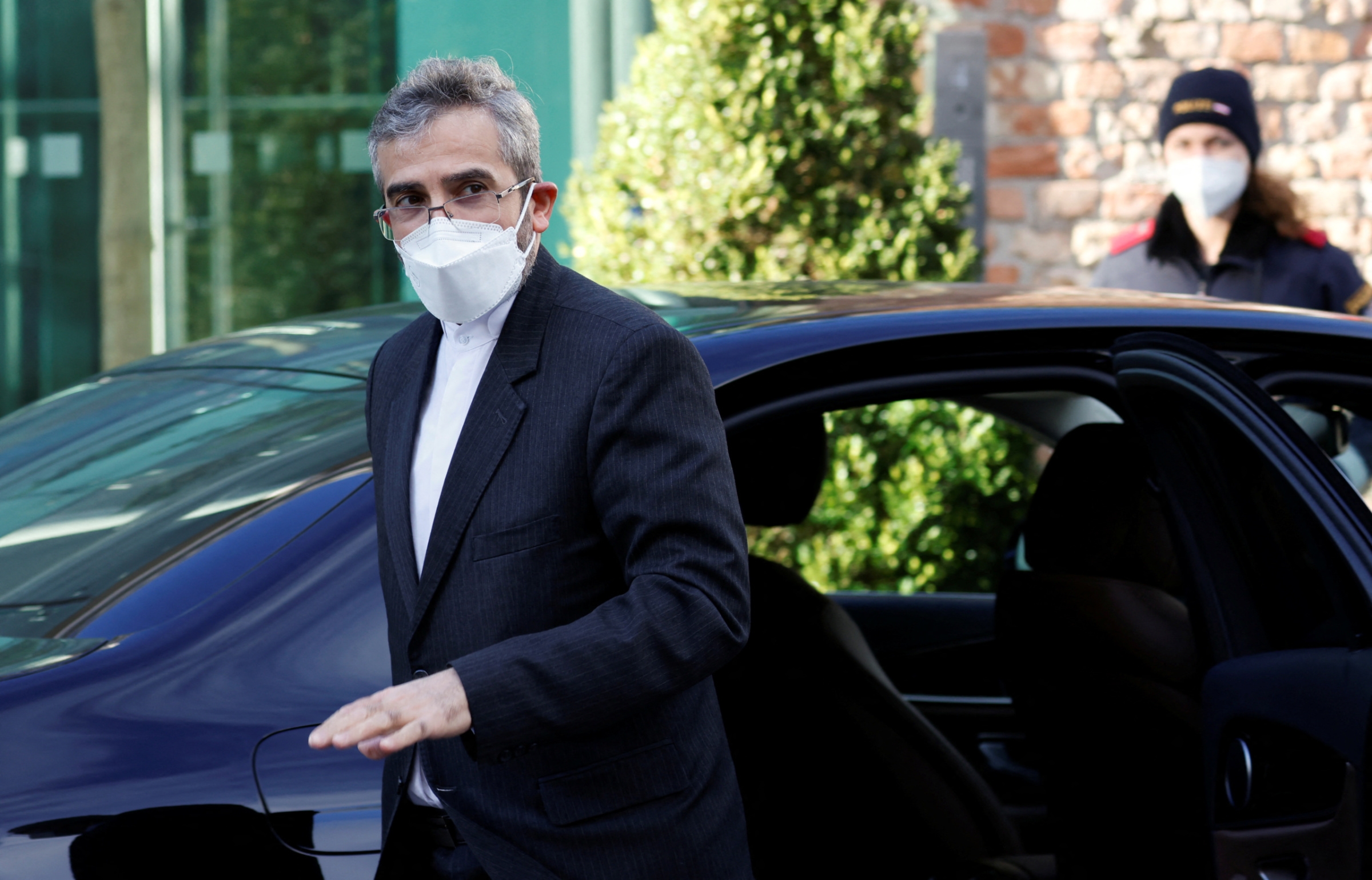
Cold response to Biden's sanctions waiver
Washington’s decision to restore a sanctions waiver to Iran to allow international nuclear cooperation projects has been coldly received by officials and experts across the political spectrum in Tehran, as western diplomats warn that time is running out to revive the 2015 nuclear deal.
On 4 February, the US restored a sanctions waiver to allow foreign countries to work on non-proliferation projects with Iran.
The sanctions waiver first came into effect after the 2015 signing of the nuclear agreement between Iran and world powers, formally known as the Joint Comprehensive Plan of Action (JCPOA).
The US State Department said the move to reinstate the sanctions waiver aimed to boost "discussions that would help close a deal on a mutual return to full implementation of the JCPOA".
But hardline Iranian politicians, such as Supreme National Security Council chief, Ali Shamkhani, refused to accept that the move would help facilitate the ongoing talks to revive the deal in Vienna.
"Real, effective and verifiable economic benefit for Iran is a necessary condition for the formation of an agreement. A show of lifting sanctions is not considered constructive," Shamkhani wrote on Twitter.
Other Iranian politicians warned that the sanctions waiver would make it more difficult for Iran to develop its nuclear programme further.
Abolfazl Zohrehvand, a former member of Iran's negotiating team, said that by suspending the sanctions on Iran's collaboration with other countries, Washington was seeking tighter control of Iran's nuclear programme.
"With the sanctions waiver, their experts would [again] have access to our facilities," the Hamshahri daily quoted Zohrehvand as saying.
"So, the presence of foreigners in nuclear facilities in Arak and Bushehr is beneficial for them, not for us," he added.
On Sunday, the front page of the pro-reformist Etemad daily led with the headline: "Necessary but insufficient move."
"Does this move show the US's goodwill?" the daily asked. "No. this was a necessary move to foster Iran's return to full compliance with the JCPOA.”
Canada accused of hypocrisy over IRGC commander visa
Eight Iranian human rights groups have called on Canada to investigate the granting of a visa to former Islamic Revolutionary Guard Corps (IRGC) commander Brigadier General Morteza Talai, who has been on holiday in the North American country.
In a statement, the rights organisations criticised Canada's decision to issue an entry permit for an IRGC commander, while visa requests by many ordinary Iranians to enter Canada have been rejected.
"The free entry of a person like Morteza Talaei [to Canada] conveys a dangerous message; a message which is, in fact, an insult to all Iranians who seek refuge in Canada," the statement read.
"We urge the Canadian government to immediately take all necessary actions to comply with recognised international laws regarding human rights.”
The statement also mentioned Talai's role in the crackdown on the student movement, Iranian police investigations into the death of Iranian-Canadian journalist Zahra Kazemi, and the formation of a special branch of police forcefully implementing rules on the hijab in Iran.
Meanwhile, Iranian journalists' attempts to investigate Ottawa's decision to issue a visa for Talaei were foiled, as Canada's immigration office refused to give any information on the case.
Bahman Kalbasi, a BBC Persian journalist, published a response by the Canadian immigration office to his questions about Talaei's case.
In its response, the immigration office said that they could not speak about a specific case without consent due to privacy laws.
At the same time, independent Iranian journalist Abdollah Abdi, who first broke the news about Talai's holiday in Canada, faced attacks by the IRGC's cyber unit.
Abdi's account on Instagram was hacked, and fake accounts in his name were created on Farsi social media.
Tehran's luxury restaurants serve golden steaks
The Ebtekar daily has reported that luxury restaurants in northern Tehran are serving steaks wrapped with edible gold leaf, while Iran's per capita meat consumption has sharply declined due to the economic crisis.
According to Ebtekar, one steak wrapped with edible gold leaf costs between 8 and 12 million Iranian rials (about $32 and $48 on the open market); while the lamb shank dish, another expensive food popular among wealthy Iranians, costs about a million Iranian rials.
"In a country where about 25 million citizens have lost purchasing power to buy meat, why is the number of such restaurants on the rise, adding to economic inequality?" the daily wrote.
"Official data shows that 12,000 children younger than five are suffering from malnutrition in Sistan-e Baluchistan province… now, in this situation, it is a strange story that super expensive restaurants are mushrooming in the country," the daily added.
In September 2021, local media reported that Iranians average meat consumption halved between 2012 and 2020.
In 2012, international sanctions against Iran's economy were imposed to curb Tehran's nuclear programme. The sanctions, made worse by widespread corruption and nepotism, have put Iran in its worst economic situation since the 1979 revolution.
*The Iranian press review is a digest of reports that are not independently verified as accurate by Middle East Eye
Middle East Eye propose une couverture et une analyse indépendantes et incomparables du Moyen-Orient, de l’Afrique du Nord et d’autres régions du monde. Pour en savoir plus sur la reprise de ce contenu et les frais qui s’appliquent, veuillez remplir ce formulaire [en anglais]. Pour en savoir plus sur MEE, cliquez ici [en anglais].


